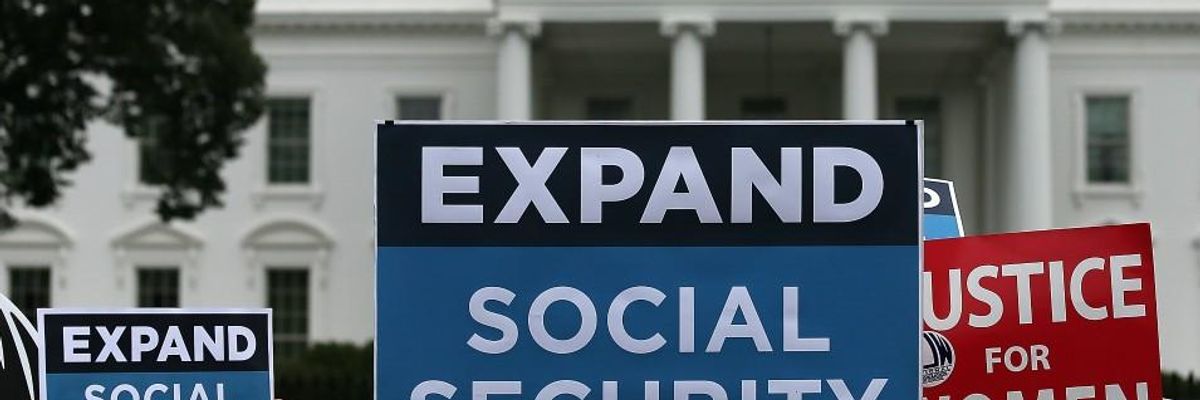On Wednesday, not even two full months into 2020, millionaires will stop paying into Social Security for the year due to the program's payroll tax cap.
The cap limits annual wages subject to the Social Security payroll tax to the first $137,700. Sarah Rawlins, program associate at the Center for Economic and Policy Research (CEPR), wrote Tuesday that the cap means "someone who makes $1,000,000 per year stops paying into the program on February 19, 2020."
"That makes a millionaire's effective tax rate well below the 6.2% of income that most Americans pay," Rawlins noted. "Instead, it is less than 1% of a millionaire's income. The Social Security tax is only levied on wages, excluding income from other sources like capital gains, meaning those with wages over the cap likely have an effective tax rate even lower than this estimate."
"The burden of Social Security taxes falls more heavily on those who make less," Rawlins added.
Rawlins suggested that one way to make the Social Security financing system more progressive is "scrapping the payroll tax cap entirely and making everyone pay the same tax rate."
"Social Security gives retirement, disability, and survivor benefits to almost 20 percent of the U.S. population, including at least six million children," Rawlins said. "But it could do better."
Rep. John Larson's (D-Conn.) Social Security 2100 Act, introduced in the House in January 2019 with 208 Democratic co-sponsors, would apply the payroll tax to wages above $400,000.
Sen. Bernie Sanders (I-Vt.), a 2020 Democratic presidential candidate, has proposed subjecting all income above $250,000 in order to "expand benefits across-the-board, including a $1,300 a year benefit increase for seniors with incomes of $16,000 a year or less."
As Common Dreams reported last December, an analysis by Boston College's Center for Retirement Research found that Social Security has become increasingly regressive in recent decades due to a number of factors, including soaring economic inequality.
"The program's become less progressive," said Jim Roosevelt, a former associate commissioner for retirement policy at the Social Security Administration and a grandson of former President Franklin Delano Roosevelt, who signed the Social Security Act into law in 1935.
"It doesn't take care of the people at the lower- and middle-income levels as well as it was intended do," Roosevelt said, "and it needs to be updated."



